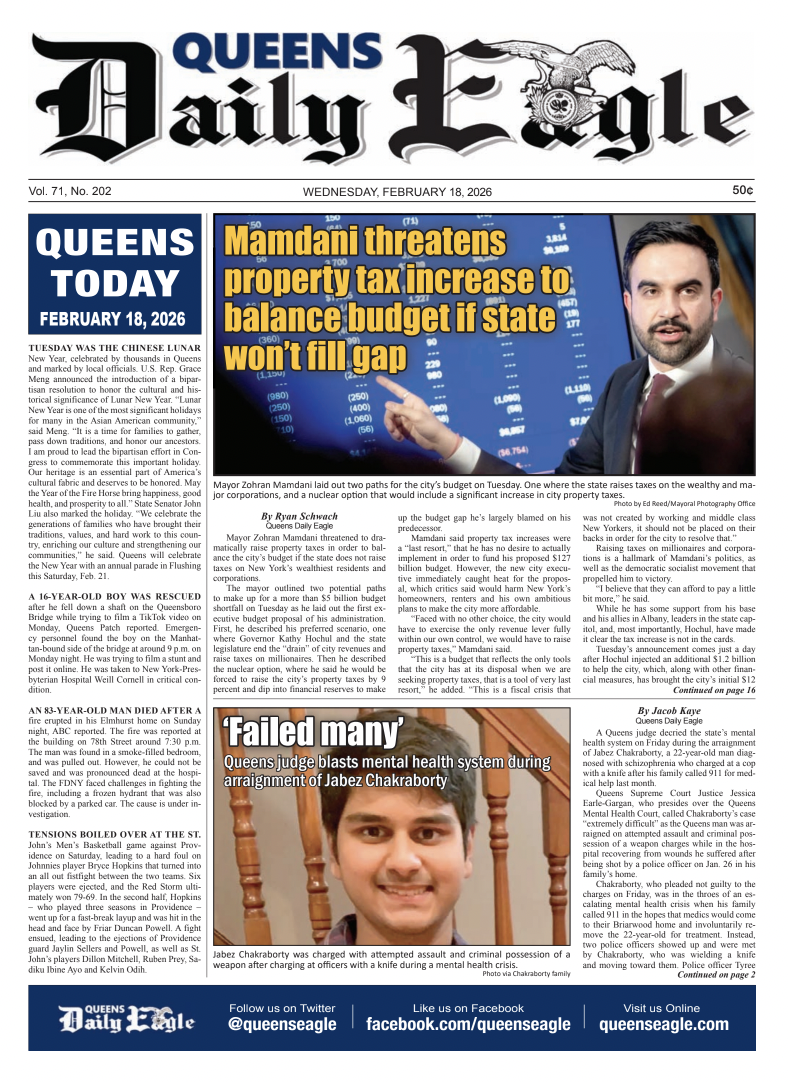COVID-19 threatens people with developmental disabilities, and the agencies that serve them
/Advocates from AHRC, the city’s largest social service organization for people with intellectual and developmental disabilities. Photo via AHRC
By David Brand
The outbreak of COVID-19 is having a dangerous dual impact on more than 30,000 New Yorkers with intellectual and developmental disabilities, not only threatening their health but also jeopardizing the long-term viability of the agencies that serve them.
So far, more than 16 percent of people who live in group homes and other settings run by AHRC, the city’s largest social service provider for people with IDD, have COVID-19 or symptoms of the illness, according to the organization’s CEO, Marco Damiani. Three have died, including a person in Jamaica and another in Howard Beach, Damiani said.
People with IDD often experience multiple health problems or require round-the-clock care, which puts them at a particular risk for complications related to the coronavirus. “This population by definition is at risk,” Damiani said
“We are starting to see a disturbing trend and we hope the curve starts to flatten but because of the comorbidities, I’m concerned we are going to see more people getting sick and possibly some deaths,” he added.
Overall, at least 130 of the 800 residents currently have COVID-19 or what the agency terms “Covid like illness” — symptoms of COVID-19 without the confirmed test result — Damiani said. More and more staff members have become ill or have called out to care for relatives, putting a further strain on the organization.
“We’re a pocket of New York City citizens that are not getting the attention we need,” he said.
AHRC runs 35 residences for 182 people in Queens, providing care and services for people along the disability spectrum — from New Yorkers who need 24/7 care to people with mild disabilities who benefit from check-ins and support. The organization also runs day programs and other initiatives for 15,000 people. The illness, Damiani said, has been a “perfect storm” for people who travel throughout the community, make frequent medical visits and at times live in congregate settings that “look like nursing homes only smaller.”
Another threat looms, as well. The COVID-19 travel shutdown could limit funding streams for AHRC and other agencies. Nonprofit organizations and health providers often bill the state based on encounters, but the order restricting social contact severely limits the number of times that staff can engage with clients.
The Centers for Medicare & Medicaid Services has enacted a short-term financial solution to stabilize funding by granting a New York state waiver request that will allow organizations to bill based on past trends until April 17.
It remains unclear what will happen in two weeks, however.
Without steady funding, organizations will face tough cutback decisions.
“We need to re-emerge from this and continue programming,” he said.




